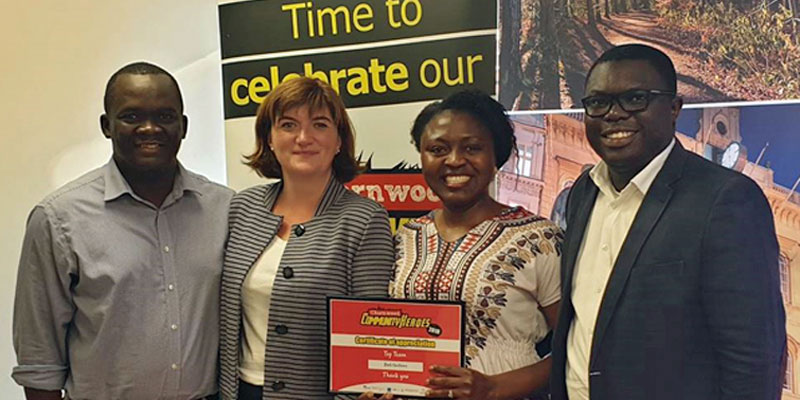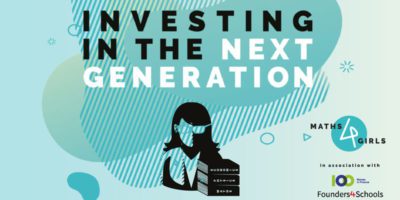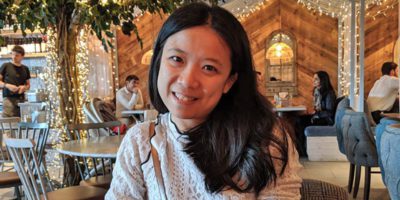Dr Juliet Ojiako is a STEM engagement specialist at Loughborough University, which involves outreach work with year 13 students. She studied for her BSc in mathematics in Nigeria and was employed as an assistant lecturer in a federal institution of learning. She came to Loughborough University in 2015 for her MSc in Industrial Mathematical Modelling, finishing this in 2016 before securing a PhD scholarship, which started in October 2016.
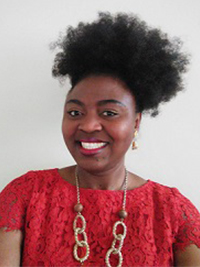
“We can challenge the stereotypes associated with maths by saying positive things and showing students the application of maths from the start. Most of the time we were taught maths without learning of its importance so we didn’t attach any real value to it, rather we perceived maths as a hurdle to gain admission into higher education.”
From Nigeria to Loughborough
I started my undergraduate education at the University of Jos, Nigeria, in 2004. I studied mathematics and graduated in 2008.
Upon graduation, I worked with a solar energy company for seven months before undertaking a scheme called the National Youth Service Corps (NYSC) in Nigeria, which is a one-year compulsory programme to ‘serve your nation’. The NYSC scheme was created in a bid to reconstruct, reconcile, and rebuild the country after the Nigerian Civil War.
I became a classroom mathematics teacher in March of the NYSC year, 2009, and I enjoyed every bit of it. I also won an award from the state government due to a charity project I completed, where I provided classroom desks and writing materials to a local school in a rural area where I served.
As soon as I completed my NYSC year, I continued as a classroom mathematics teacher in a college from 2010 to February 2011, which was when I secured an assistant lectureship position in a higher institution of learning. During this period, I enrolled for a postgraduate diploma in education, to enable me to become a better teacher, and I was eventually certified in 2012.
I became a mathematics lecturer from 2011 until September 2015, which is when I came to the UK for further studies. I started and completed my MSc in 2016 and subsequently PhD in 2021, both in applied mathematics.
Concurrently as a student, I enrolled under the doctoral college at Loughborough University to be trained to be a better teacher. First was essential teaching skills, then becoming an Associate Fellow of the Higher Education Authority (HEA) and then a full Fellow.
Throughout my PhD, from February 2017 to date, I have held some sort of teaching position with Loughborough University. I started as a teaching assistant until the end of 2019, serving two departments, the mathematics and the chemical engineering department. At that time, I was also the postgraduate representative for both the School of Science (for one year) and the mathematics department (for two years).
I then secured a university teaching position, from February until July 2020, within the school of science. Later in the year, I secured my current role as a STEM engagement specialist.
Diversity matters – championing under-represented groups in maths
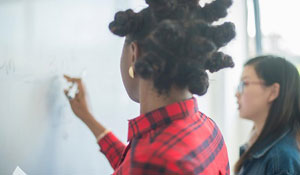
This project also aims at widening participation of underrepresented groups, such as women and Black, Asian, and Minority Ethnic (BAME) groups into STEM education.
At the moment I am working on the mathematics content for four virtual upcoming events under this project. On a day-to-day basis, I develop my presentation slides alongside responding to other departmental activities.
Besides my work at Loughborough University, I belong to an organisation called Black Excellence UK. We celebrate the achievements of the BME community in the UK, inspiring and showcasing role models for young minds. We collaborated with Loughborough University and organised their Black History Month event in 2019, winning us the Loughborough Community Heroes award.
The importance of well-structured feedback
The feedback on my project at Loughborough University has been awesome. The first slide I developed was taken around some schools for scrutiny and all their responses were great. As part of the activities in the slides, we are also suggesting different ways of teaching some mathematics topics. The project is progressing well.
We measure the results of our intervention by the feedback we receive. Since we intend to change the way some courses are taught, we are careful when designing our feedback questions. We always request details of how our interventions have changed their ‘method’ of teaching STEM subjects.
A stronger and wiser me!
COVID-19 has made all events virtual thereby reducing the ‘fun’ part of the class activities. Some residential science events will become virtual too. To be honest, it was difficult to switch programmes from face-to-face to virtual as initial preparation was done before my role started in February. Currently, I have developed mathematics content for upcoming virtual events.
We are hoping that by September 2021, we will be able to organise some face-to-face STEM events for schools. Personally, I have had to work from home and ‘e-travel’ to schools. Pre-COVID there were plans to visit some industries/companies and have TEDx-style talks but everything has had to change now.
Fortunately, I have been able to balance my work and personal life. Though the pandemic has affected everyone in one way or the other, the truth is that I love the version of me that has emerged. A stronger and wiser me!
Fixing the leaky pipeline talent in STEM
Basically, there are charts we are working with that show, for example, detailed statistics of the ratio of women who studied engineering versus the ratio who work as engineers in any engineering firm.
For instance, 15% of engineering and technology first degrees are awarded to women, but only 8% of professional engineers are female, according to Prof John Perkins’ 2013 Review of engineering skills. The sector can and must do better.
There are leaks where some women drop out of the chart (know as the leaky pipeline). As part of my role, we hope to identify the reason for these leaks to help us guide the younger students. Hence, we also show them what it is like to be an engineer before they decide to study engineering in higher education. This helps them to make informed decisions.
In addition to the low female participation, the BME community is poorly represented. As the public relations officer of Black Excellence UK, I noticed during our school events, especially every October (Black History Month), that it is difficult to get role models for the younger students.
Sadly, some young students were not motivated to study particular courses in HE because they have never seen people of colour in such a career. For instance, only 6% of people in professional engineering roles are from black and minority ethnic backgrounds, according to a Royal Academy of Engineering analysis of Labour force survey data in 2013.
Challenging maths stereotypes
Anybody can do maths and succeed as a mathematician if only they open their minds to learn. I have read books on how some supposedly mediocre students became the most ‘brilliant’ students and in some cases, even becoming inventors in science. You don’t need a ‘super brainy’ mentality. You just need to work hard and care about what you do.
From personal experience, when I was employed as a classroom teacher in a college, I noticed my students had maths ‘phobia’. So, I intentionally challenged their perceptions and taught them maths in a systematic way. I am proud to say that they made wonderful grades in maths in the West African Examination. As a result, a few of them went further and studied maths in higher education. I treasured this ‘transformative’ experience in my heart as my impact on the world of maths.
We can challenge the stereotypes associated with maths by saying positive things and showing students the application of maths from the start. Most of the time we were taught maths without learning of its importance so we didn’t attach any real value to it, rather we perceived maths as a hurdle to gain admission into higher education.
Close your ears to the naysayers
To all girls and women who are interested in pursuing careers in mathematics, I would advise just starting from where you are right now. You don’t need to think too much about it. Just start, put your heart to it and close your ears to the naysayers. Do take note though that you need to be consistent in studying your maths problems.
I recently made a short video for a project on choosing what type of maths to study in higher education – pure or applied maths. It helped make choices based on your ‘natural’ personality and preferences. This way, studying maths becomes rather interesting. Honestly, once you get interested in studying maths, there is no right and wrong way to start.
Women will come out of the pandemic stronger
I have taken part in another film, the Words of Women in Mathematics in the Time of Corona, which is very timely, and the target (women) is so perfect. It follows on from a film that was made three years ago, Faces of Women in Mathematics.
Women are emotionally expressive in nature and are also very strong. It’s a great opportunity to see and hear how we are all doing in every country of the world in these interesting times.
With the pandemic, our lives have changed forever because a new version of us has emerged. Having to do research from home (as well as keeping the home, plus children for many people, which meant homeschooling when needed) and still be ‘fine’ is a real strength. Personally, I love the woman I have become lately.
When I saw the trailer, I had a good laugh as I initially thought my home workspace was a huge mess but then I realised that it followed a normal distribution across most homes. This film will make us relax and laugh, which is good therapy, especially in the ongoing pandemic.
Changing perceptions
I’m looking forward to changing the perception of pre-higher education students towards maths via the upcoming virtual events and to planning more fun maths activities that will enable students to ‘love’ maths and feel as though COVID-19 was never here.
https://www.lboro.ac.uk/departments/maths/staff/juliet-ojiako/

